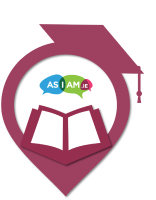Deciding whether to tell your university or college about your disability or difference is a personal choice. You are not required to disclose unless you want to, and any information you share is confidential. However, disclosing can help you access practical supports to make college life and learning more manageable and accessible.
Many students choose not to disclose because of stigma or fear of being misunderstood. But sharing your diagnosis can:
In Ireland, laws like the Equal Status Act and Education Act require colleges and universities to support students with disabilities. This includes removing barriers to access and offering accommodations where needed (unless doing so would cause the college “undue burden” which rarely applies, especially if state funding is available).
By registering with your college’s Disability Support Service (DSS) or Access Officer, you may have access to supports like:
You don’t have to disclose straight away, or at all, but if you are struggling, it can be a good step toward getting help. Even if you feel you’re getting on well at college, disclosure can support future accommodations (e.g. during exams) and promote better understanding of your needs among your lecturers and other staff members.
You can start by meeting with the Disability Support Service or speaking to your lecturer or tutor. You may need documentation, such as a psychologist’s report or letter of diagnosis. Once registered, staff will only share your information with others (like lecturers) if needed and with your permission.
If you want a parent or friend to support you in meetings, you can invite them – but they can’t act on your behalf without consent.
It’s normal to feel anxious about disclosing. Colleges are becoming increasingly aware of neurodiversity and are expected to support your right to learn as yourself, without needing to mask your identity.
